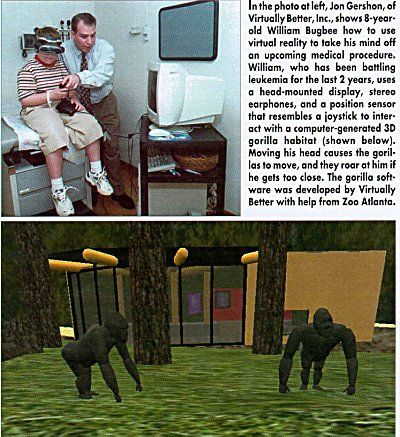Virtual Reality Distracts Kids During Chemo
ATLANTA-Pediatric cancer patients often have anxiety before scheduled treatments or procedures, and treatment often requires normally active children to remain nearly motionless for extended periods of time. At the AFLAC Cancer Center at Children’s Healthcare of Atlanta, young cancer patients may find their treatment a little easier to bear thanks to an innovative program currently under way to examine the effects of virtual reality as a “distractor” for painful or uncomfortable medical procedures.

ATLANTAPediatric cancer patients often have anxiety before scheduled treatments or procedures, and treatment often requires normally active children to remain nearly motionless for extended periods of time. At the AFLAC Cancer Center at Childrens Healthcare of Atlanta, young cancer patients may find their treatment a little easier to bear thanks to an innovative program currently under way to examine the effects of virtual reality as a distractor for painful or uncomfortable medical procedures.
The research was conceived by psychologist Dr. Barbara Rothbaum of Emory University and computer expert Dr. Larry Hodges of the Georgia Institute of Technology, founders of Virtually Better, Inc.
The anecdotal evidence is promising so far, according to Rosemarie Lemos, a registered nurse with the Outpatient Clinic at the AFLAC Cancer Center. One very anxious patient, as he was experiencing the virtual reality environment, asked me when I was going to perform the procedure, she said. My response was I already did.
The initial study of the virtual reality system includes 50 patients between the ages of 8 and 18 undergoing chemotherapy via a central venous access device.